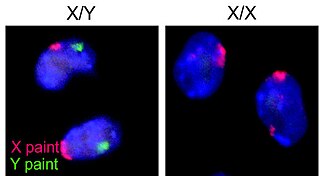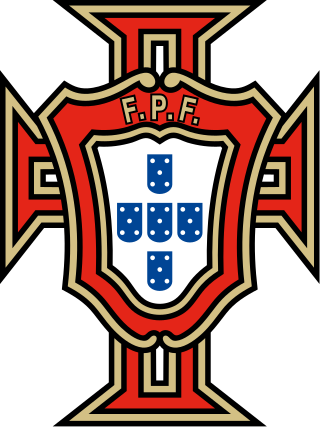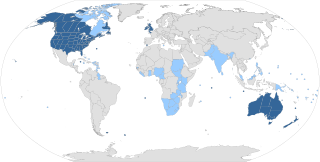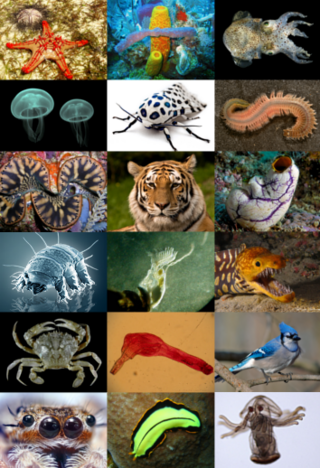
India, officially the Republic of India, is a country in South Asia. It is the seventh-largest country by area, the second-most populous country, and the most populous democracy in the world. Bounded by the Indian Ocean on the south, the Arabian Sea on the southwest, and the Bay of Bengal on the southeast, it shares land borders with Pakistan to the west; China, Nepal, and Bhutan to the north; and Bangladesh and Myanmar to the east. In the Indian Ocean, India is in the vicinity of Sri Lanka and the Maldives; its Andaman and Nicobar Islands share a maritime border with Thailand, Myanmar, and Indonesia.

The International Standard Book Number (ISBN) is a numeric commercial book identifier that is intended to be unique. Publishers purchase ISBNs from an affiliate of the International ISBN Agency.

Mohandas Karamchand Gandhi, popularly known as Mahatma Gandhi, was an Indian lawyer, anti-colonial nationalist and political ethicist who employed nonviolent resistance to lead the successful campaign for India's independence from British rule, and to later inspire movements for civil rights and freedom across the world. The honorific Mahātmā, first applied to him in 1914 in South Africa, is now used throughout the world.

Sex is the trait that determines whether a sexually reproducing animal or plant produces male or female gametes. Male plants and animals produce smaller mobile gametes, while females produce larger ones. Organisms that produce both types of gametes are called hermaphrodites. During sexual reproduction, male and female gametes fuse to form zygotes, which develop into offspring that inherit traits from each parent.

William Shakespeare was an English playwright, poet and actor. He is widely regarded as the greatest writer in the English language and the world's pre-eminent dramatist. He is often called England's national poet and the "Bard of Avon". His extant works, including collaborations, consist of some 39 plays, 154 sonnets, three long narrative poems, and a few other verses, some of uncertain authorship. His plays have been translated into every major living language and are performed more often than those of any other playwright. He remains arguably the most influential writer in the English language, and his works continue to be studied and reinterpreted.

World War II or the Second World War, often abbreviated as WWII or WW2, was a world war that lasted from 1939 to 1945. It involved the vast majority of the world's countries—including all of the great powers—forming two opposing military alliances: the Allies and the Axis powers. World War II was a total war that directly involved more than 100 million personnel from more than 30 countries.

The EFL Cup, currently known as the Carabao Cup for sponsorship reasons, is an annual knockout competition and major trophy in men's domestic football in England. Organised by the English Football League (EFL), it is open to any club within the top four levels of the English football league system—92 clubs in total—comprising the top level Premier League, and the three divisions of the English Football League's own league competition.

The Brazil national football team, nicknamed Seleção Canarinho, represents Brazil in men's international football and is administered by the Brazilian Football Confederation (CBF), the governing body for football in Brazil. They have been a member of FIFA since 1923 and a member of CONMEBOL since 1916.

The 1986 FIFA World Cup was the 13th FIFA World Cup, a quadrennial football tournament for men's senior national teams. It was played in Mexico from 31 May to 29 June 1986. The tournament was the second to feature a 24-team format. Colombia had been originally chosen to host the competition by FIFA but, largely due to economic reasons, was not able to do so, and resigned in 1982. Mexico was selected as the new host in May 1983, and became the first country to host the World Cup more than once, after previously hosting in 1970.

The France national football team represents France in men's international football matches. It is governed by the French Football Federation, the governing body for football in France. It is a member of UEFA in Europe and FIFA in global competitions. The team's colors and imagery reference two national symbols: the French red-white-blue tricolour and Gallic rooster. The team is colloquially known as Les Bleus. They play home matches at the Stade de France in Saint-Denis and train at INF Clairefontaine in Clairefontaine-en-Yvelines.

The Germany national football team represents Germany in men's international football and played its first match in 1908. The team is governed by the German Football Association, founded in 1900. Between 1949 and 1990, separate German national teams were recognised by FIFA due to Allied occupation and division: the DFB's team representing the Federal Republic of Germany, the Saarland team representing the Saar Protectorate (1950–1956) and the East Germany team representing the German Democratic Republic (1952–1990). The latter two were absorbed along with their records; the present team represents the reunified Federal Republic. The official name and code "Germany FR (FRG)" was shortened to "Germany (GER)" following reunification in 1990.

The Portugal national football team has represented Portugal in international men's football competition since 1921. The national team is controlled by the Portuguese Football Federation (FPF), the governing body for football in Portugal. Portugal's home matches are played at various stadiums throughout Portugal, and its primary training ground and technical headquarters, Cidade do Futebol, is located in Oeiras. The head coach of the team was most recently Fernando Santos, who stepped down after the 2022 World Cup, and the captain is Cristiano Ronaldo, who also holds the team records for most caps and most goals.

Jesus, also referred to as Jesus Christ or Jesus of Nazareth, was a first-century Jewish preacher and religious leader; he is the central figure of Christianity, the world's largest religion. Most Christians believe he is the incarnation of God the Son and the awaited Messiah prophesied in the Hebrew Bible.

Adolf Hitler was an Austrian-born German politician who was dictator of Germany from 1933 until his death in 1945. He rose to power as the leader of the Nazi Party, becoming the chancellor in 1933 and then taking the title of Führer und Reichskanzler in 1934. During his dictatorship, he initiated World War II in Europe by invading Poland on 1 September 1939. He was closely involved in military operations throughout the war and was central to the perpetration of the Holocaust: the genocide of about six million Jews and millions of other victims.

Sergio Leonel Agüero del Castillo, also known as Kun Agüero, is an Argentine former professional footballer who played as a striker. He is considered one of the best strikers of his generation and one of the greatest players in the history of the Premier League, during his decade-long association with Manchester City. He is the club's all-time top goalscorer and holds the record for most Premier League hat-tricks, with 12.

The United States of America, commonly known as the United States or America, is a country primarily located in North America. It consists of 50 states, a federal district, five major unincorporated territories, nine Minor Outlying Islands, and 326 Indian reservations. It is the world's third-largest country by both land and total area. The United States shares land borders with Canada to its north and with Mexico to its south. It has maritime borders with the Bahamas, Cuba, Russia, and other nations. With a population of over 333 million, it is the most populous country in the Americas and the third most populous in the world. The national capital is Washington, D.C. and the most populous city and financial center is New York City.

World War I, often abbreviated as WWI, was one of the deadliest global conflicts in history. Belligerents included much of Europe, the Russian Empire, the United States, and the Ottoman Empire, with fighting occurring throughout Europe, the Middle East, Africa, the Pacific, and parts of Asia. An estimated 9 million soldiers were killed in combat, plus another 23 million wounded, while 5 million civilians died as a result of military action, hunger, and disease. Millions more died in genocides within the Ottoman Empire and in the 1918 influenza pandemic, which was exacerbated by the movement of combatants during the war.

Canada is a country in North America. Its ten provinces and three territories extend from the Atlantic Ocean to the Pacific Ocean and northward into the Arctic Ocean, covering over 9.98 million square kilometres, making it the world's second-largest country by total area. Its southern and western border with the United States, stretching 8,891 kilometres (5,525 mi), is the world's longest binational land border. Canada's capital is Ottawa, and its three largest metropolitan areas are Toronto, Montreal, and Vancouver.

English is a West Germanic language of the Indo-European language family, with its earliest forms spoken by the inhabitants of early medieval England. It is named after the Angles, one of the ancient Germanic peoples that migrated to the island of Great Britain. Existing on a dialect continuum with Scots, and then most closely related to the Low German and Frisian languages, English is genealogically West Germanic. However, its vocabulary also shows major influences from French and Latin, plus some grammar and a small amount of core vocabulary influenced by Old Norse. Speakers of English are called Anglophones.

Animals are multicellular, eukaryotic organisms in the biological kingdom Animalia. With few exceptions, animals consume organic material, breathe oxygen, are able to move, can reproduce sexually, and go through an ontogenetic stage in which their body consists of a hollow sphere of cells, the blastula, during embryonic development. Over 1.5 million living animal species have been described—of which around 1 million are insects—but it has been estimated there are over 7 million animal species in total. Animals range in length from 8.5 micrometres (0.00033 in) to 33.6 metres (110 ft). They have complex interactions with each other and their environments, forming intricate food webs. The scientific study of animals is known as zoology.




















